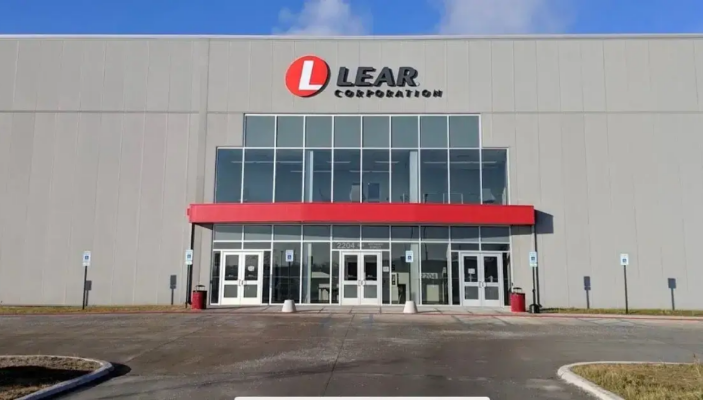When you sit in a modern vehicle, it’s easy to overlook the complex systems beneath the surface. Yet many of the most essential technologies—like seating, electronics, and connected vehicle systems—are developed by a company working quietly behind the scenes: Lear Corporation. With a global presence and deep partnerships in the automotive world, Lear plays a central role in shaping how we drive today—and tomorrow.
Lear Corporation at a Glance
Founded in 1917 and headquartered in Southfield, Michigan, Lear Corporation is a Fortune 150 company with over 160,000 employees across 38 countries. Its core focus is designing and manufacturing seating and electrical systems for all major automotive brands, including Ford, GM, BMW, Toyota, and Volkswagen.
Lear is split into two primary business segments:
- Seating Systems: Comfort, safety, and flexibility for all classes of vehicles.
- E-Systems: Electrical distribution, vehicle connectivity, and software-defined mobility solutions.
Why Lear Matters in the Mobility Ecosystem
1. Redefining Vehicle Comfort and Design
Lear’s innovations in seating go beyond cushioning and stitching. They integrate smart materials, adaptive climate control, and lightweight design that improves fuel efficiency without compromising safety. For example, Lear’s Intu™ seating system uses sensors and software to adjust support based on posture and movement—enhancing driver comfort and reducing fatigue.
2. Smart Electrical Systems for Modern Cars
In today’s vehicles, the electrical architecture is as crucial as the engine. Lear’s E-Systems division builds wiring harnesses, power distribution systems, and software that enables vehicles to function more intelligently. Whether it’s an electric car or a high-performance SUV, Lear provides the nervous system that powers communication between modules.
3. Supporting the EV Transition
With electric vehicles becoming more mainstream, Lear has strategically adapted. The company supplies high-voltage wiring, battery connection systems, and thermal management solutions—components essential to EV performance and safety. Lear’s high-power charging systems support fast charging infrastructure, helping automakers meet growing consumer demand.
A Sustainable Approach to Automotive Innovation
1. Green by Design
Lear is deeply invested in sustainable manufacturing. The company operates under a detailed ESG (Environmental, Social, and Governance) strategy with goals such as:
- Reducing greenhouse gas emissions by 50% by 2030
- Using 100% renewable electricity in its global operations by 2030
- Increasing use of recycled and bio-based materials in seat fabrics and plastics
Its EcoSense™ line of seating products incorporates recycled yarns, water-based coatings, and low-emission processes to help manufacturers achieve their sustainability goals.
2. Social Responsibility and Inclusion
Lear actively promotes diversity, equity, and inclusion (DEI) within its workforce. It has received recognition for its employee resource groups, ethical labor standards, and inclusive leadership programs. Its community partnerships span education, STEM scholarships, and regional upliftment projects in underrepresented communities.
Technology That Keeps Cars Secure and Connected
Lear doesn’t just make cars more comfortable—it makes them smarter and safer.
- Connectivity platforms allow seamless over-the-air updates and mobile integrations.
- Cybersecurity features defend vehicle data systems against hacking attempts.
- Software-based features support real-time vehicle monitoring, diagnostics, and autonomous vehicle readiness.
Its Xevo™ platform, acquired in 2019, connects millions of vehicles to cloud-based services. This includes driver profiles, infotainment personalization, predictive maintenance alerts, and more.
Strategic Growth Through Innovation and Acquisition
1. Investment in Software and Data
Lear is increasingly focusing on becoming a software-defined mobility provider. It has invested heavily in in-house software development and platforms that enable automated driving, vehicle-to-vehicle communication, and data analytics for fleet operators.
2. Global Manufacturing Excellence
With over 250 facilities worldwide, Lear operates one of the largest manufacturing networks in the automotive supply chain. Advanced robotics, lean production methods, and localized assembly help it deliver on time and scale efficiently.
3. Notable Acquisitions
Lear continues to evolve by acquiring smaller tech firms with specialized talent. For example:
- Arada Systems: Enabled V2X (vehicle-to-everything) communications
- EXO Technologies: Enhanced geolocation and sensor integration
- Xevo: Expanded Lear’s capabilities in cloud-connected services
What Sets Lear Apart from Its Competitors
Lear’s advantage lies in end-to-end integration. From concept to production, it controls the full lifecycle of products. Unlike many suppliers who focus on narrow segments, Lear provides complete seating and electronic systems with embedded software, giving it a unique edge in the value chain.
Its commitment to quality, innovation, and social responsibility helps maintain long-term contracts with top OEMs (Original Equipment Manufacturers).
Looking Ahead: Lear in 2030 and Beyond
The future of mobility will be shaped by autonomy, electrification, connectivity, and shared mobility. Lear’s roadmap aligns with all four. By continuing to develop modular systems, AI-powered seat technologies, and cloud-based connectivity platforms, Lear is preparing vehicles to meet the changing expectations of consumers.
Whether it’s a luxury EV or a self-driving rideshare car, Lear will likely be behind the scenes, quietly powering the experience.
Conclusion: Quietly Driving the Future
Lear Corporation may not be a household name, but its influence touches millions of lives every day. As the world’s cars become more electric, intelligent, and personalized, Lear is positioned at the center of this evolution—engineering the components that matter most.
FAQs
1. What does Lear Corporation specialize in?
Lear focuses on automotive seating and electronic systems, including wiring, software, and connected vehicle technologies.
2. Is Lear involved in electric vehicles?
Yes, Lear supplies high-voltage systems and EV-specific components for electric cars and charging infrastructure.
3. How does Lear support sustainability?
Lear uses renewable energy, recycled materials, and eco-friendly processes across its global facilities as part of its ESG strategy.
4. Who are Lear’s main customers?
Lear supplies nearly all major automakers, including GM, Ford, BMW, Toyota, Volkswagen, and others.
5. Is Lear investing in autonomous vehicle tech?
Yes, through software development, acquisitions, and its Xevo platform, Lear supports the evolution of autonomous and connected vehicles.

